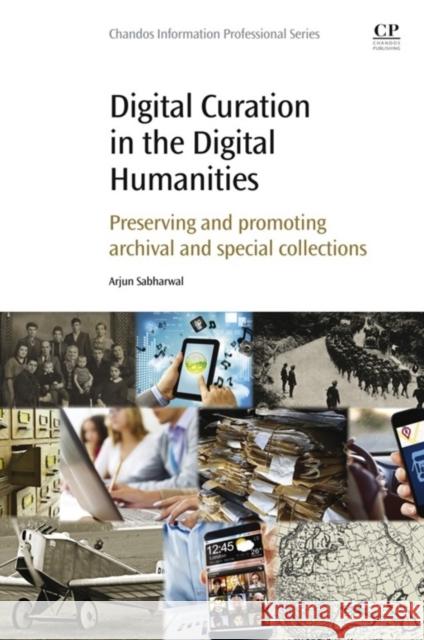Digital Curation in the Digital Humanities: Preserving and Promoting Archival and Special Collections » książka
Digital Curation in the Digital Humanities: Preserving and Promoting Archival and Special Collections
ISBN-13: 9780081001431 / Angielski / Miękka / 2015 / 182 str.
Digital Curation in the Digital Humanities: Preserving and Promoting Archival and Special Collections
ISBN-13: 9780081001431 / Angielski / Miękka / 2015 / 182 str.
(netto: 255,46 VAT: 5%)
Najniższa cena z 30 dni: 266,04
ok. 16-18 dni roboczych.
Darmowa dostawa!
Archives and special collections departments have a long history of preserving and providing long-term access to organizational records, rare books, and other unique primary sources including manuscripts, photographs, recordings, and artifacts in various formats. The careful curatorial attention to such records has also ensured that such records remain available to researchers and the public as sources of knowledge, memory, and identity. Digital curation presents an important framework for the continued preservation of digitized and born-digital collections, given the ephemeral and device-dependent nature of digital content. With the emergence of analog and digital media formats in close succession (compared to earlier paper- and film-based formats) came new standards, technologies, methods, documentation, and workflows to ensure safe storage and access to content and associated metadata. Researchers in the digital humanities have extensively applied computing to research; for them, continued access to primary data and cultural heritage means both the continuation of humanities scholarship and new methodologies not possible without digital technology. Digital Curation in the Digital Humanities, therefore, comprises a joint framework for preserving, promoting, and accessing digital collections. This book explores at great length the conceptualization of digital curation projects with interdisciplinary approaches that combine the digital humanities and history, information architecture, social networking, and other themes for such a framework. The individual chapters focus on the specifics of each area, but the relationships holding the knowledge architecture and the digital curation lifecycle model together remain an overarching theme throughout the book; thus, each chapter connects to others on a conceptual, theoretical, or practical level.
- theoretical and practical perspectives on digital curation in the digital humanities and history
- in-depth study of the role of social media and a social curation ecosystem
- the role of hypertextuality and information architecture in digital curation
- study of collaboration and organizational dimensions in digital curation
- reviews of important web tools in digital humanities











